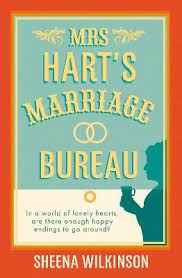I like being alone, but there’s always some kind of company at my house. There’s always somebody around who can match my mood, or come up with an interesting fact or idea, or offer a different way of thinking about things. There are friends whose voices I enjoy, even though they just to ramble on about whatever they want. Most of the time, they hang about together, peaceful enough, but they can be also be surprisingly chatty and conversational.
Often, when I see them waiting, simply stepping away and ignoring them is not as easy as it should be. I ought to be paying attention elsewhere but how, in that moment, can I stop listening? How can I ignore that voice? I rarely think, let alone say, ‘I’m done with you,’ although I might think ‘Sorry. Not right now,” and scuttle on.
Friends, I have heard what your voices told me and I remember, or did once; the memory fades. Some of them stay huddled together, muttering and whispering, as if there is more they could tell me. A few speak freshly and brightly, like new neighbours who have moved into an established street, eager to share their experiences and views. There are, I admit, a few with old or complicated voices, those who ask for a little too much time and patience whenever we have a moment together.
To be honest, I like seeing them waiting around, all gathered together, here and there, as I pass by. They do make it easy to know who is with who, which ones are likely to be kindred spirits, which ones share the same vibe. I watch out for the colours each one is wearing: their style and design. What hints do they give off? What mood? What feeling? Does this one carry a whiff of worthiness, or is that one, loudly and clearly, occupying more room than really necessary? I know there are other ways of enjoying such friendships: ways maybe more admirable than this, and I have tried. However, at heart, I am not someone happy with that kind of virtual relationships.
So, there it is. Company! Friends, eh? Hey ho! So many days, weeks - and even years - spent with some. Those happy, contented moments of joy. Or those times of waiting, when their initial greeting was minimal or worse: plainly discouraging. So easy to be lured on by the need to know, to listen to what this or that friend says, to be in awe of their personalities, and then slowly steadily feel the need to seek out more friendly guests.
However, for now, sssh! Enough! Enough! A hard thing has been decided.
This space is too crowded for all of them, and I’m fairly that sure that some haven’t spoken my name for ages. The time has come for many of the present company to leave the room, to shift somewhat closer to the door and, yes, to exit and depart. An area waits, ready in the hall: an ideal spot for a last gathering, a final chance to pause, eye to eye with old friends, and say goodbye.
I am not joyful about seeing so many friends leave, but there are places they can go, and bags and boxes to aid their journey. All is ready. The time has come. This - ta da! - is a moment for action. And so I shift a couple gently towards the exit, following up with a group I had honestly forgotten about.
So sorry, goodbye, farewell, adieu, my friends. We’ve had some good times together, and you were very useful way back when, I know, I know.
Time for the big sigh and the shake of the head. Tears? No, I don’t think so.
Yet now is when I make my mistake. I pause, lose focus. I should be escorting an old friend briskly to where they need to wait but instead, I take that one book, one particular title, down from the shelf. And worse. I open the book's cover, and then cannot help but turn a couple of pages. I start to read, and read on, and read on - and the whole chance passes.
A little later, I slip the book fondly back on to the shelf again. That friend isn’t going anywhere, and in addition, by all things Mari-Kondo, I glance at the clock and see that my book de-cluttering moment is now over, done and gone. Things happen.
Saying farewell to good company is never easy.
Penny Dolan












